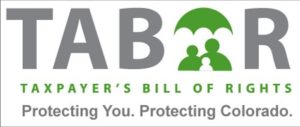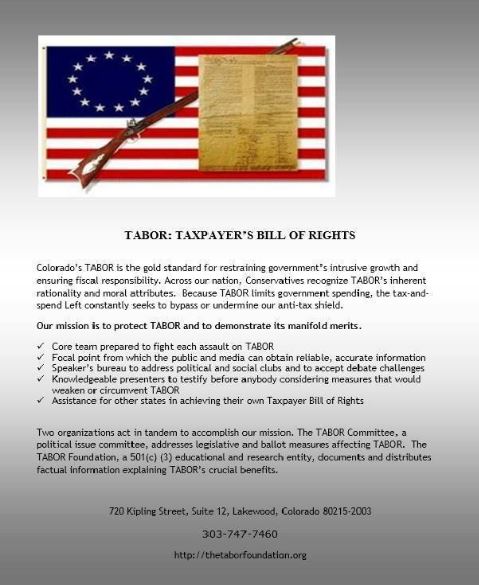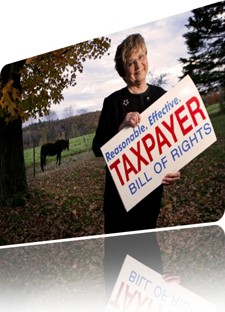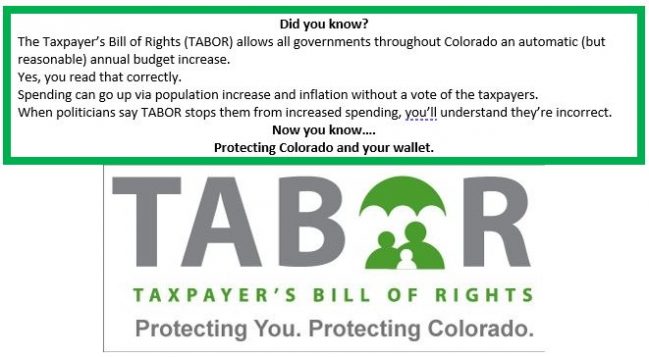
In 2020, Colorado voters approved Proposition 116, which reduced the state’s income tax rate from 4.63 to 4.55 percent. Due to the state’s application of certain provisions of TABOR, however, taxpayers will effectively lose out on the rate reduction for the first several years.
Naturally, voters expected that Proposition 116 would allow them to keep more of their own money. A close look at documents maintained by Legislative Council Staff (LCS), however, reveals that things did not work out how voters expected. Tax rates went down, but constitutionally mandated tax refunds — known as “TABOR refunds” — fell by the exact same amount, negating taxpayer savings from the voter-approved tax cut.
It’s a bit complicated, but here’s how it works.
Article X of the state constitution — commonly known as the Taxpayer’s Bill of Rights, or TABOR — sets limits on the amount of tax revenue the state can collect each year. If revenues, including income-tax collections, surpass the TABOR limit, the excess gets refunded back to voters.
Picture state coffers as a silo and revenues as grain filling it up. In a good year, there may be more bounty than what the silo can hold. In that case, the overflow goes back to the people.
Each year, the limit — or the size of the silo — increases based on population growth and inflation, allowing government spending to grow automatically. If the state wants to collect or keep tax monies at a level higher than automatic growth permits, it must win voter consent at the ballot.
When voters reduced revenues last year, they voted to decrease the amount of grain put into the silo by a specified amount. In executing the will of the people, the state reduced the amount of grain but put it in the same, larger silo. At the lower income-tax rates, the harvest (i.e. revenues) would have to be exceptionally good to fill up the same silo and trigger a refund.
Incidentally, state revenue forecasts show very bountiful times ahead and refunds for at least four consecutive years despite all this. That means that for at least this year and the next three, smaller refunds will offset the voter-approved tax cuts unless additional reforms are adopted.
Read plainly, TABOR appears to guard against this outcome by requiring the limit to be “adjusted for revenue changes approved by voters.” LCS evidently has a different interpretation—one which has effectively stripped voters of their tax cut.
Governor Jared Polis has lauded the income tax cut on multiple occasions and even said that he supports eliminating the state income tax entirely. He can demonstrate fidelity to his own rhetoric and to the state constitution by directing the Colorado Department of Revenue to adjust the TABOR limit for the “revenue changes approved by voters” with Proposition 116. Alternatively, the General Assembly could set a new, lower TABOR limit to reflect the new tax rate. Either solution would cause voters to receive their full refunds and benefit from the income tax reduction they adopted in 2020.
Ben Murrey, Fiscal Policy Center Director with the Independence Institute











